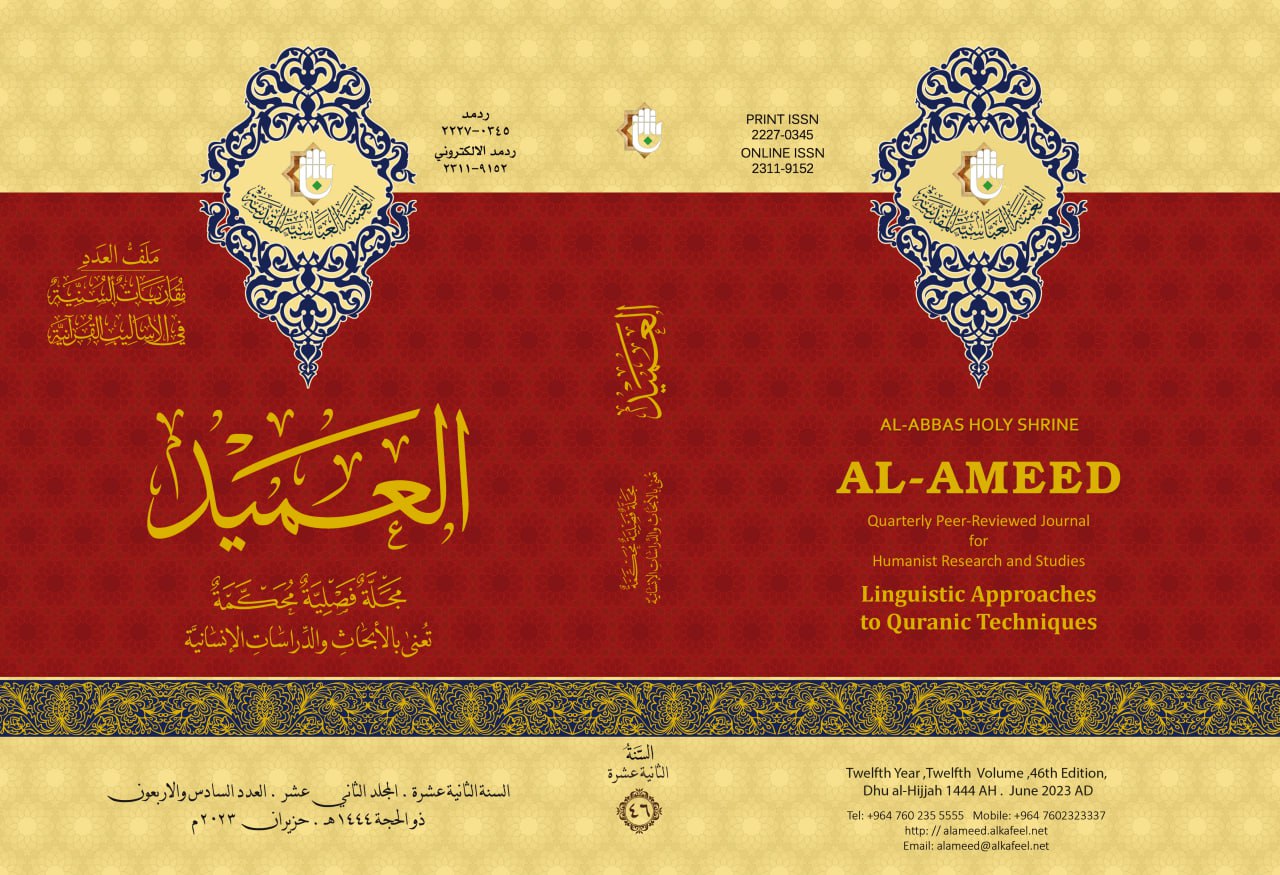مقاربة تداولية لترجمة الأفعال الكلامية في الخطاب الديني
DOI:
https://doi.org/10.55568/amd.v12i46.273-294الكلمات المفتاحية:
البراغماتية، عملية الترجمة، أفعال الكلام، النصوص الدينية، المستوى البراغماتيالملخص
تستقصي الدراسة الحالية العلاقة بين البراكماتية التي تعنى بدراسة المعنى المقصود للمتكلم والترجمة التي تعنى بتحويل النص من اللغة الأصل الى اللغة الهدف. تبين الدراسة أهمية المعنى التداولي في عملية الترجمة وخصوصا في ترجمة الأفعال الكلامية في النصوص الدينية العربية. تعتبر الدراسة الحالية محاولة لتسليط الضوء على دور البراكماتية في ترجمة الأفعال الكلامية وأظهار كيف أن بناء الجملة ودلالتها غير كافيين للحفاظ على المعنى المراد من الجملة. بالأضافة الى ذلك تبين الدراسة أن ترجمة النصوص الدينية ليس فقط مسألة أتباع التركيب النحوي للجملة ودلالتها وأنما مسألة التأكيد على المعنى البراكماتي إِذْ يعتبر المعنى المقصود في سياق معين عنصر مهم للحفاظ غلى المعنى الحقيقي. لذلك فالهدف هو التركيز عل مستوى معين للترجمة ألا وهو المستوى البراكماتي. بالتزامن مع هذا الهدف تفترض الدراسة بأن ترجمة النصوص الدينية العربية يشتمل على عقبات في المستوى البراكماتي إذْ إِنَّ هناك مشاكل من المهم تجنبها على مستوى ترجمة الافعال الكلامية وهذه المشاكل تشتمل على (1) يساء ترجمة الدلالة البراكماتية لبعض الجمل (2) لايوجد تمييز واضح بين الأفعال الكلامية التي تدل على الجماعة والأفعال الكلامية التي تدل على شخص معين () ترجمة بعض الأفعال الكلامية التي تعود الى مجموعة معينة من الأفعال وكأنها تنتمي الى مجموعة أخرى. بمعنى اخر، هناك لامحدودية في ترجمة الأفعال الكلامية وهذه اللامحدودية يمكن تجاوزها بالأشارة الى التنظيم الشامل للنص. لأجل تحقيق هدف الدراسة، تم أختيار بعض المقتطفات من نص ديني عربي مترجم وتم تحديد مشاكل تخص ترجمة الأفعال الكلامية ومن ثم تحليلها وترجمة هذه المقتطفات وفقا للمقاربة التداولية المقترحة والتي تعتبر أكثر جوهرية من المقاربة الدلالية.
التنزيلات
منشور
إصدار
القسم
الرخصة
الحقوق الفكرية (c) 2022 https://alameed.alameedcenter.iq/amd/index.php/ameed/copyright

هذا العمل مرخص بموجب Creative Commons Attribution-NonCommercial 4.0 International License.


